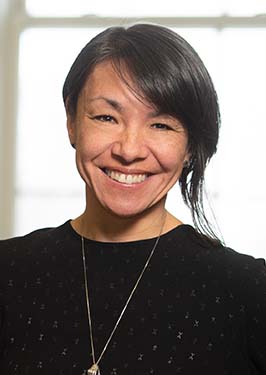
Continued sustainability and decolonizing, equity, diversity and inclusion (DEDI) progress has earned York University a spot on Canada’s Greenest Employers list for the 12th year in a row, and its first ever inclusion in the Best Diversity Employers list.
Organized by the Canada’s Top 100 Employers project, both lists are annual editorial competitions that spotlight institutional excellence across the nation. The Greenest Employers list recognizes those that “lead the nation in creating a culture of environmental awareness in their organizations,” and the Canada’s Best Diversity Employers list recognizes those with exceptional workplace diversity and inclusiveness programs.
“This is the first time York University has achieved two top employer designations. This impressive milestone is a testament to our community’s commitment to our values as a progressive university dedicated to excellence, social justice, diversity, inclusion and sustainability”, said President and Vice-Chancellor Rhonda Lenton. “I am grateful for the significant contributions community members continue to make toward driving positive change locally and globally.”
“Being recognized as Canada’s Best Diversity and Canada’s Greenest Employers is possible because of the values and dedication of York employees, staff and faculty alike. I hope York and all our colleagues can take pride in how hard we work to be a place where so many different people, all taking so many different paths in their careers and lives, can thrive and feel like they belong,” said Laina Bay-Cheng, interim Vice-president of Equity, People and Culture.

One of the reasons York was selected for Canada’s Best Diversity Employers for the first time was the launch of the Decolonizing, Equity, Diversity and Inclusion Strategy, which formalizes and co-ordinates DEDI efforts across the institution. Importantly, the strategy appreciates that there are many forms of discrimination and oppression that exist in society that must be addressed to create an equitable and inclusive world. At York, DEDI values are also infused into other key planning documents, and existing frameworks, including the Framework and Action Plan on Black Inclusion and the Indigenous Framework.
The DEDI Strategy also includes the “rights of the planet,” reflecting York’s determined leadership and ambitious goals in advocating for environmental justice and sustainability. Over the years, the University has made considerable investments and proactive efforts to safeguard the environment in response to the burgeoning climate crisis, placing York’s campuses ahead of other post-secondary institutions, organizations and entire municipalities.
For over a decade, those efforts have consistently led to York being named on the Greenest Employers list due to its sustainability initiatives aimed at reducing the overall environmental impact of the University through conservation and measurement, decarbonization and innovation. Among recent examples is the release of York’s own detailed emissions data and ecological footprint assessment, compiled by the Ecological Footprint Initiative at York. With its release, York became the first Canadian institution to compile and publicize its own comprehensive data of this nature.
The University also recently announced it would be accelerating its timeline and aiming to achieve net-zero emissions by 2040 – a decade sooner than its previous commitment.
This year’s Greenest Employers list recognized employee and senior-level involvement in new and ongoing sustainability projects across the University, such as annual Earth Month tree planting and campus clean-up events, community partnerships with organizations like the Global Footprint Network and the Canadian Black Chamber of Commerce, and York’s leadership in hosting the 2023 Congress of the Humanities and Social Sciences, the largest fair-trade event in Canadian history.
Other notable sustainable features highlighted through the editorial competition were long-standing York waste management initiatives such as Zero Waste, York’s comprehensive, multifaceted waste management program that was first established in 1990 and has been expanding for over three decades. The program has continually surpassed its targets, growing from an initial goal of 50 per cent waste reduction to a recent achievement of 70 per cent of waste diverted from landfills in 2019.
In areas of teaching and research, York’s over 500 sustainability-focused courses supported its application in being named as a Greenest Employer, in addition to its Eco-Campus in Costa Rica that operates as a local, national and international school dedicated to education and research on neotropical conservation, eco-health, community well-being and sustainable livelihoods for neighbouring communities.
“York’s collaborative and holistic approach to sustainability has played a large part in why we continue to excel in sustainability leadership,” said Mike Layton, York’s first chief sustainability officer. “This work wouldn’t be possible without the support of students, faculty, instructors and staff. Community adoption of green initiatives and a continued desire to support the University in expanding its impact to create a more sustainable future is integral. This recognition is a reflection of community efforts.”
For more information about the Top 100 Awards that York has been recognized for, visit the Diversity Employers site or the Greenest Employers site.
